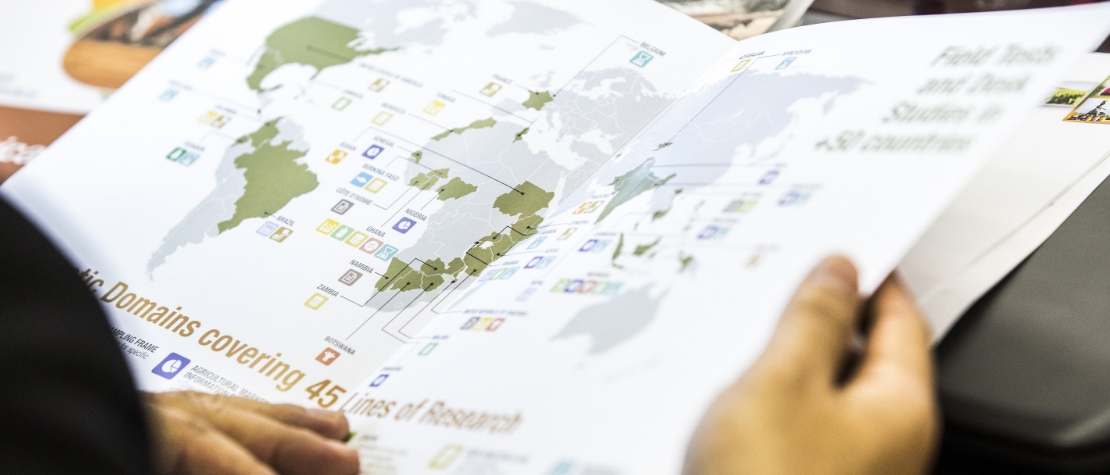Statistical Capacity Development

One of the key missions of FAO is to support member countries develop the capacity of their statistical systems and enable them to collect, analyze, disseminate and use relevant, reliable and timely data. By strengthening countries’ capacity in this area, FAO contributes to make available key analytical and decision-making support tools for national, regional and global evidence-based actions.
How can national governments request capacity development assistance?
National governments should discuss on an ongoing basis their statistical capacity development needs and priorities directly with their FAO country office. These needs and priorities will usually be reflected in the Country programming framework (CPF) and support will be planned in consultation with the relevant technical units and regional or sub-regional statisticians. If assistance requests are raised, the FAO country office will contact the relevant technical divisions and regional or sub-regional statisticians to analyze how the support can be provided.
FAO statistical capacity development activities are funded through:
- Technical Cooperation Programme (TCP)
- Regular programme funds allocated to technical divisions
- Extra-budgetary programmes that support statistical development.
For specific information and inquiries on FAO capacity development programmes, national governments are also encouraged to contact these programmes directly.
Statistical capacity development programmes

The Global Strategy was launched as a 15-year multi-phase program to provide a comprehensive framework for national and international statistical systems enabling developing countries to produce, and to apply the basic data and insights needed to address the 21st century's challenges.
During its first phase of implementation (2012–2018), the Global Strategy was centered on three pillars outputs produced through three technical components: Methodological Research, Technical Assistance and Training. This phase laid the groundwork for improved statistical systems across participating countries.
Currently, in its second phase (GSARS II, 2020–2024), the Global Strategy continues to build on the first phase's methodologies by strengthening statistical capacities of countries through targeted training and technical assistance at the national, regional, and global levels. This phase is also aligned with the 50x2030 Initiative to bridge the agricultural data gap by creating the necessary capacities in the beneficiary countries.
Support will be provided through the provision of training and technical assistance in the following areas:
- Assistance in the design of strategic plans for agricultural statistics.
- Training in agricultural statistics, HR Management, and Leadership, and providing scholarships in Masters in Agricultural Statistics.
- Technical assistance and training on tools and methodologies for data collection to provide high-quality and timely data to enable policy analysis and monitoring, accountability reporting, evidence-based decision-making and research.
- Data analysis and dissemination to ensure that countries have the pivotal technical capacity to process, analyze and disseminate according to the best standards.
As GSARS II will conclude in June 2024, the strategy's impacts are being integrated into ongoing statistical programs and frameworks to ensure sustained progress.
Related capacity development resources
- Collection of GSARS resources (guidelines, handbooks and training materials)
